Tanzania Community Health Initiatives led by Staff RCP Caregivers
The ten caregivers for the Reaching Children’s Potential Program (RCP) are essential to families adopting new practices in the areas of health, nutrition, hygiene, and education. They each work one-on-one with parents on Tanzania community health initiatives, with an emphasis on sustained behavior change. In this team interview, the caregivers describe their backgrounds, daily work, and shared passion for their important work.
(Pictured left to right: top row: Amilia, Elkana, Ashura; middle row: Fatina, Thekla, Given (Tanzania Team Leader); front row: Asha, Sifuni, Tausi, Happy)
(Regina Mhagama just had a baby girl and is out on maternity leave and not pictured here.)
In Tanzania’s Ukwega Ward, RCP caregivers engage volunteers and local mothers together in varied strategies to provide the 12 Essential Services. Focusing on active learning together, they present workshops on health, nutrition, and some 30 related topics, and conduct weekly home visits with each mother to reinforce the workshop lessons on community health initiatives.
Each caregiver maintains a caseload of families, keeping records of every child’s growth and development, translating RCP workshops from English to Swahili (when presented by volunteers in English), and offering support and encouragement for practicing at home what parents learned in workshops. They monitor the adoption of new technologies such as boiling drinking water and washing hands with soap and water at the hand-washing stations provided to RCP families, and they routinely discuss the importance of hygiene and health practices and regular check-ups at the Ipalamwa General Clinic.
Tanzania volunteers work alongside the caregivers during home visits, sharing their own expertise, and providing practical advice for adopting new behaviors with their children.
Volunteer Kathy Berryman who served in Tanzania in February and March 2022 emphasizes the central importance of the RCP Caregivers: “Those of us who have been serving in the Ukwega Ward can see the profound impact the caregivers have on the communities. As we walked from home to home, the caregivers were greeted by members of the village. Everyone seemed to know them. They are clearly an integral part of the community and respected by all. They assess the status of the mothers and infants they are visiting and provide education about the pillars of the RCP program – hygiene and nutrition and education. The mothers tell us that they talk to their friends and family about their home visits and what they have learned. We can see the ripple effect. The whole community is benefiting from the visits made to these RCP families!”
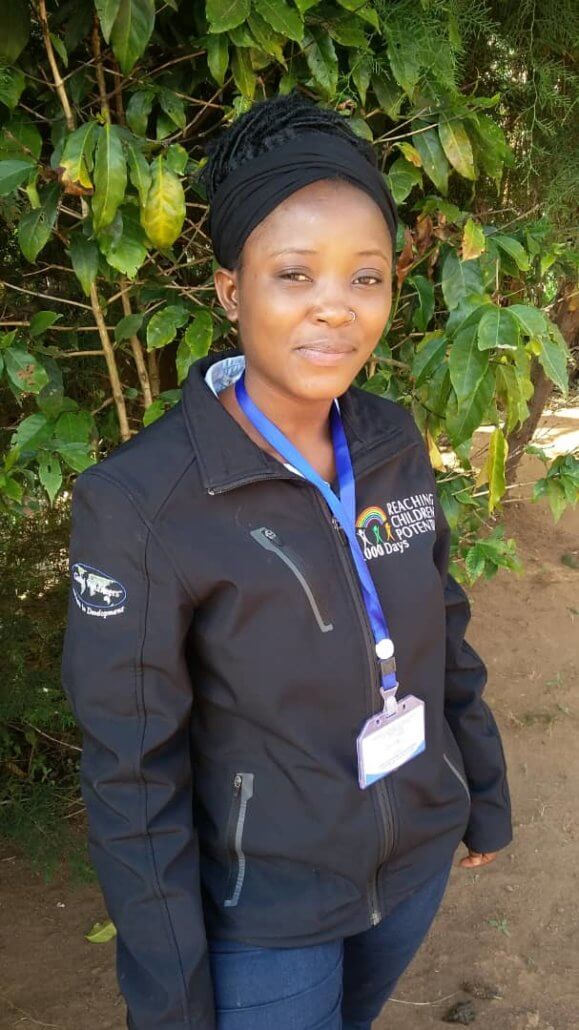
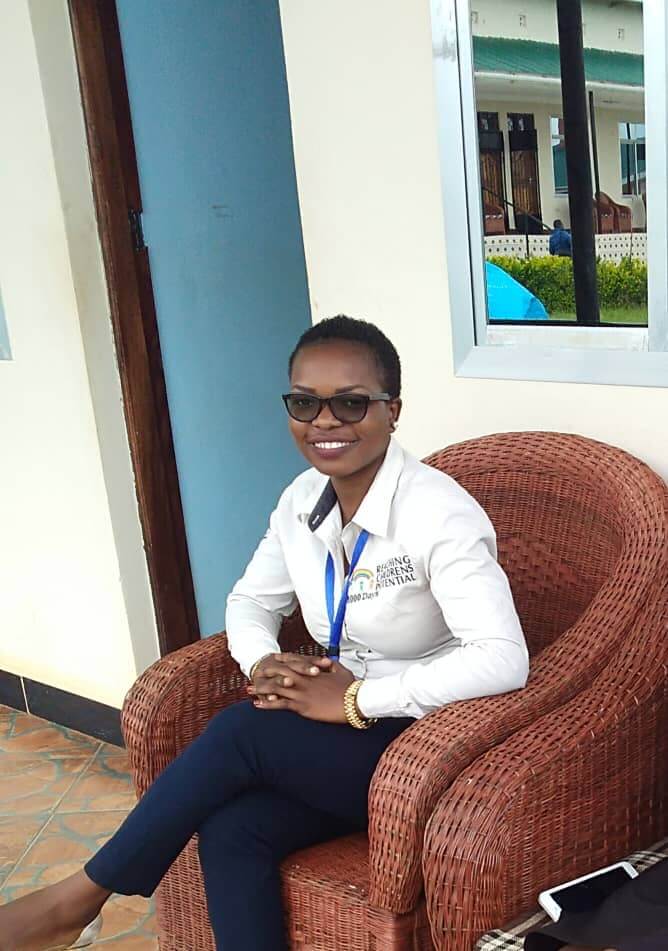
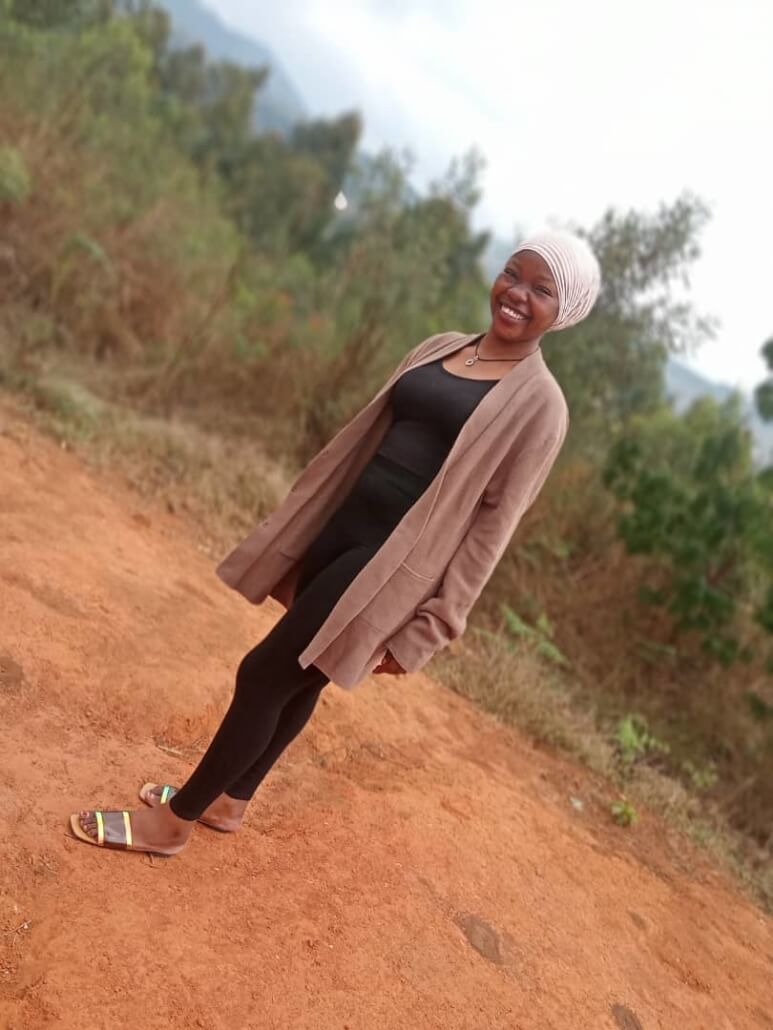
Education and Training Prepared RCP Caregivers for Village Careers
Among them, the caregivers cover a breadth of education and experience for supporting pregnant women, mothers and fathers, and children in participating villages.
Thekla Bernard Mushi is Tanzania RCP Caregiver Supervisor. She earned a Bachelor‘s Degree in Population and Development Planning from the Institute of Rural and Development Planning (IRDP) – Dodoma. Before joining Global Volunteers’ RCP Program, Thekla worked as Evaluation Assistant in tele-mentoring to build health worker capacity in HIV care and treatment at ICAP-Tanzania in the Dar es Salaam region.
Fatina Mbugi earned a Bachelor’s Degree in Sociology from the University of Dodoma, and was a social worker with PAMOJA Leo Organization for children living in hardship in the Tanga Region before joining Global Volunteers. She has also volunteered as Community Development Officer in the Igumbilo Executive Ward of the Iringa Region. Fatina is the youngest of six children and she lost her mother when she was eight years old. She says her family focuses on personal development and education.
Sifuni Mdegela earned her bachelor’s degree in Community Development from Tumaini University in Iringa. Sifuni grew up in the village of Ipalamwa, our Reaching Children’s Potential (RCP) Demonstration Program site in Tanzania. She attended Fikano Primary School in Ipalamwa, where volunteers now serve as part of the RCP Program. She has six siblings, although one of her sisters passed away in 2008. Her father also passed away in 2020. She is single and has a four-year-old daughter, Aika.
Regina Mhagama earned a bachelor’s degree in Community Development from the University of Tumaini in Iringa. She was born in the Ruvuma region of Tanzania. Regina previously worked with Women Against Poverty (WAPO) and with the Evangelical Lutheran in the office of Bishop Mdegella, where she heard about Global Volunteers. She is married and she and her husband have a daughter, Doreen, and a son, Daniel. They just had their third child, a baby girl, who has not yet been named.
Ashura Mohamed earned her bachelor’s degree in Community Development with a concentration in Participatory Project Planning and Management from Tengeru Institute of Community Development (CDTI) in Arusha. She was born in Iringa and her family continues to live there. Ashura is married and has two beautiful daughters: Heavenlight (age 4) and Briella (18 months).
Happy Mshanga earned a Bachelor’s Degree in Health Systems Management from Mzumbe University. Before joining Global Volunteers on the Tanzania RCP Program, Happy worked as a sales representative for TECH Africa Investment Company in Dar es Salaam. Happy is the youngest of five children in her family.
Asha Ngweta earned her certificate in community development from Ruaha Community Development Training Institute and then her ordinary diploma from Rungemba Community Development Training Institute in the Iringa region. Asha was born in the Iringa region and has two siblings. She and her brother and sister were orphaned when Asha was six years old. Asha says she must work hard to help her siblings, especially her younger brother.
Amilia Telaka Kikoti was born and raised in Ipalamwa and graduated from secondary school there. Before joining Global Volunteers, Amilia was a Matron of primary school students at Star International Primary School in Iringa. She has two brothers and a sister and they live with their mom in Ipalamwa.
Elkana Valence Chaula earned her bachelor’s degree in Adult Education and Community Development from the University of Dodoma and her master’s degree in Social Linguistics from Open University of Tanzania. Elkana’s father’s family is from Iringa and her mother’s from Njombe and she has a large extended family. She was born and raised in Iringa and has four siblings. Her father is a pastor. Elkana is recently married (2020) and she and her husband, Dr. Benjamin Makafu, plan on starting their own family.
Tausi William earned a Bachelor’s Degree in Family and Consumer Studies from Sokoine University of Agriculture (SUA). Before joining Global Volunteers, Tausi was a nutritional officer volunteer at the Integrated Rural Development Organization (IRDO) Feed the Future program in the Rungwe District. Tausi is married and has a four-year-old son.
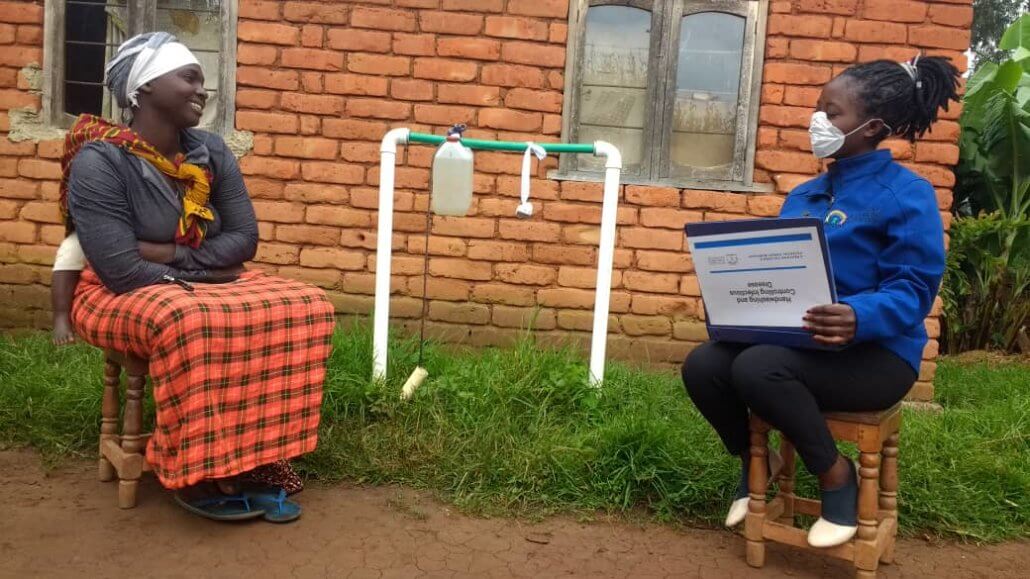
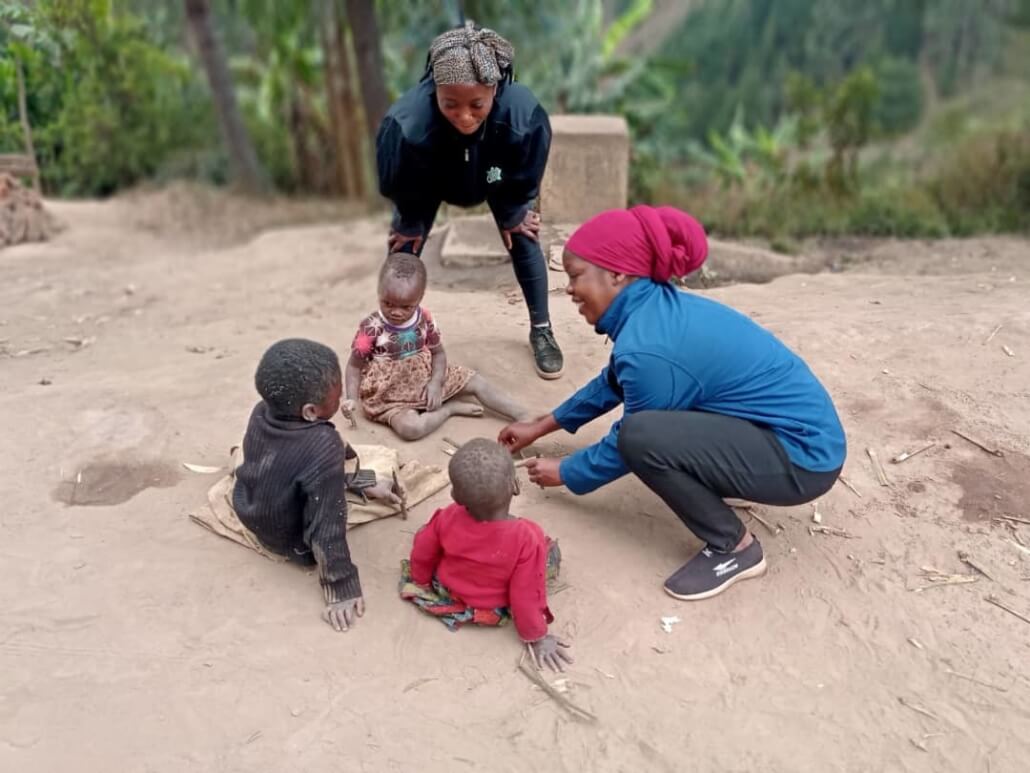
In a virtual interview with Maggie Bjorklund, the ten caregivers shared more about their work with the Reaching Children’s Potential Program and Tanzania Community Health Initiatives:
What do you think is important about the role of caregivers in the RCP Program?
Elkana: As a caregiver, I try to live my life in a way which will impress RCP mothers to adopt practices from me. In short, I practice what we teach in the program: I always avoid smoke in the kitchen, boil water, and wash my hands. I think it is important for my own life to be an example.
Sifuni: We reinforce workshop materials with the families during home visits, encouraging the parents to implement new knowledge they learn through workshops and home visits so that they can improve their lives. It’s wonderful to work with volunteers whenever they are in the village, especially in home visits and workshops.
Ashura: We facilitate and inform village women of upcoming home visits, social activities, Parents’ Club meetings, and workshops, and encourage their attendance. We also work with volunteers and assist them in taking a lead role to raise awareness about children’s and mothers’ health and involve them both in home visits and workshops.
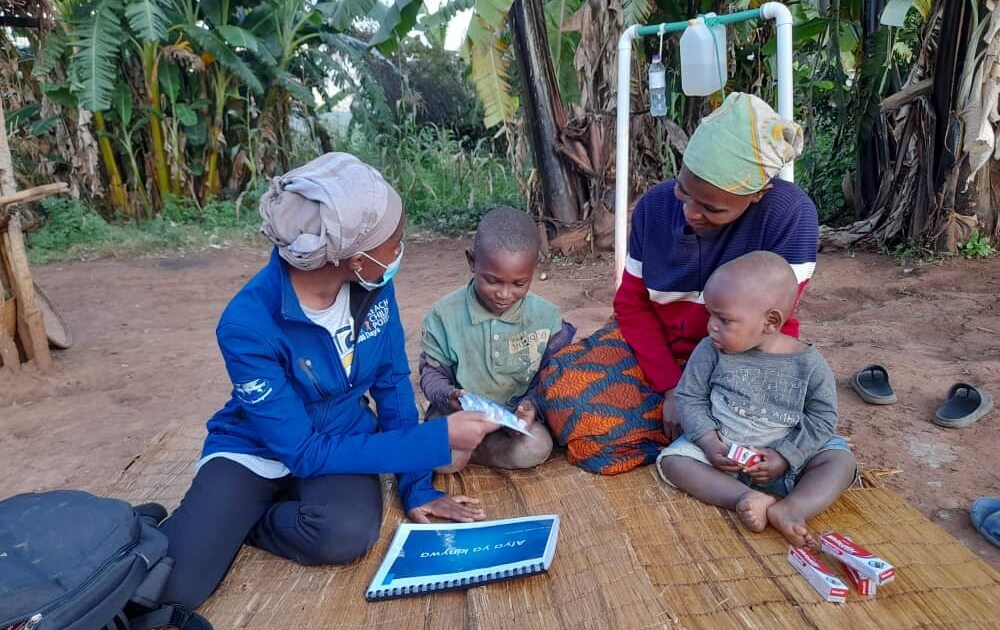
What encourages you about your work with Global Volunteers?
Regina: The RCP Program truly touches human life. Global Volunteers’ work is so compelling for me because they work with the community directly to initiate positive changes. For example, those activities/technologies delivered by RCP such as meals, hand-washing stations for hygiene, EarthBoxes, and interactive workshops to build women’s capacity and import more knowledge are so incredibly important.
Elkana: Apart from this work being aligned with my career and allowing me to socialize with the community, Global Volunteers works for the well-being of children, which impresses me so much. I like to invest in children because they are the generation of today and tomorrow.
Sifuni: I work with Global Volunteers because I want to see behavior changes in my community. It’s a process, but through what Global Volunteers works with, I have seen changes already. And I have great hope for more changes in my community.
Asha: I love learning new things and coming up with creative ideas to improve the behavior of the community. I love working as part of a team.
Fatina: Global Volunteers touches your life deeply as a caregiver. You are not just doing your work but giving of yourself to the community.
Happy: It was my dream to work with a community as a way of giving back to it. I was raised in a community full of love and support and I wished to have a chance to return the love that the community poured out to me. I am grateful for this opportunity that Global Volunteers gave me and I am serving my community with love and happiness.
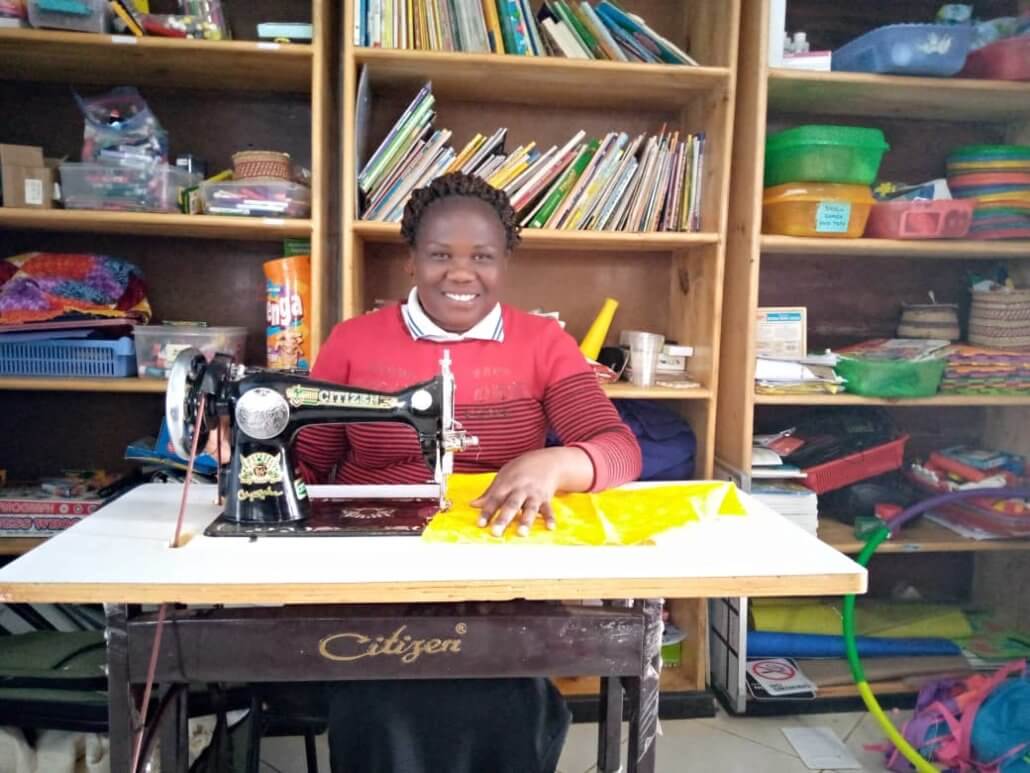
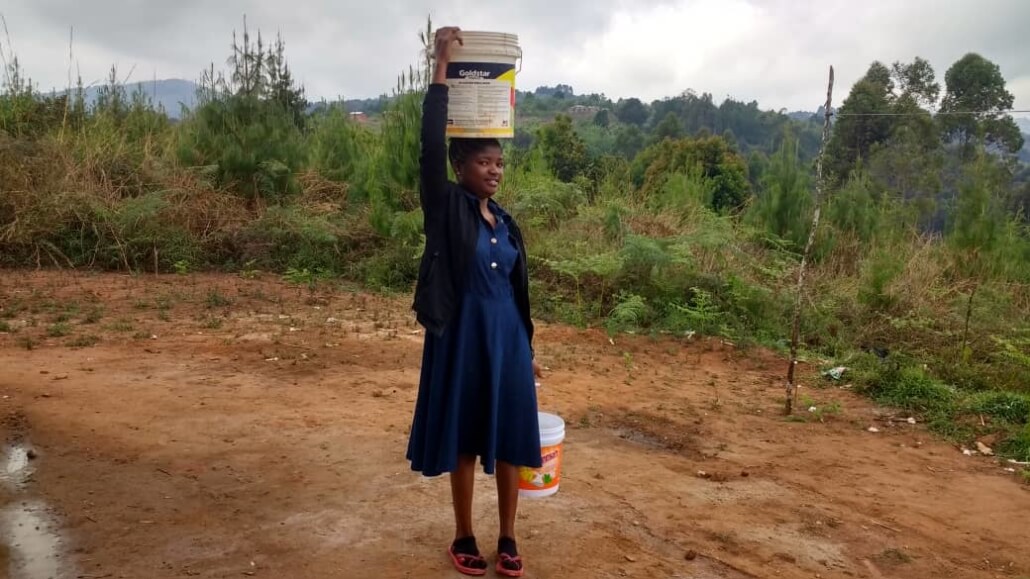
“The RCP Program truly touches human life. Global Volunteers’ work is so compelling for me because they work with the community directly to initiate positive changes. For example, those activities/technologies delivered by RCP such as meals, hand-washing stations for hygiene, EarthBoxes, and interactive workshops to build women’s capacity and import more knowledge are so incredibly important.”
– Regina Mhagama, RCP Caregiver
What is one aspect of your job you most enjoy?
Elkana: I like home visits because that’s when I get to spend one-on-one time with children and their moms, and I can have more intimate discussions with moms about what they are learning in the program and any difficulties they are having.
Asha: Definitely home visits. I feel happy when I go to talk to mothers about health, pregnancies, and nutrition. My favorite thing about my job is the opportunity to work alongside people who have more knowledge than me and can help me gain new knowledge. I love learning from the volunteers. I like working with RCP families because I get a chance to share knowledge about healthy pregnancies with expecting moms and seeing that the mom gives birth to a healthy baby is so rewarding.
Sifuni: In the Ukwega Ward, people are passing through different hardships in their lives and they need external support to change the situations, so working with Global Volunteers gives me a chance to share what I have so that they can improve.
Tausi: I like working with Reaching Children’s Potential Program and volunteers to make sure children get all that they need to reach their potential in the future such as education, nutrition, better health services, hygiene, and sanitation. I want to ensure all children are protected from any form of abusive behavior like drug abuse and to enable parents to create a friendly and supportive environment for better growth and development.
Regina: I love conducting home visits and interacting with children. I enjoy this so much. Through home visits I have a great chance to see, learn, and interact with the moms and children on community health initiatives. We talk about different issues and I am able to give them more direct support when I am at their home. It is rewarding to feel helpful and supportive. It’s also a good opportunity for me to watch the children in their movement, interact with them, and reinforce their growth by focusing on the first 1,000 days. Honestly, my favorite part is to apply what knowledge I have and learn what families have available to them to work together to eliminate stunting.
Ashura: I like doing home visits because it’s not only a part of my job, but it gives me great pleasure to spend time with moms. We have a great time together and in many cases even become very good friends. Home visits is where the moms and me get a chance to share a lot of different stories concerning our lives in general, discuss different matters, and advise each other, especially on matters of family, marriage, and health.
Amilia: My favorite part of my job is conducting home visits and reinforcing with RCP moms what they have learned at the workshops on topics such as handwashing, nutrition while pregnant and breastfeeding, oral health care, and hygiene in general.
Happy: My favorite part of being an RCP caregiver is home visits. I like home visits because they give me the chance to spend time with families and share ideas, knowledge, and skills. It also gives me the chance to learn from them. Home visits create a bond between the caregiver and the family by building trust and love.
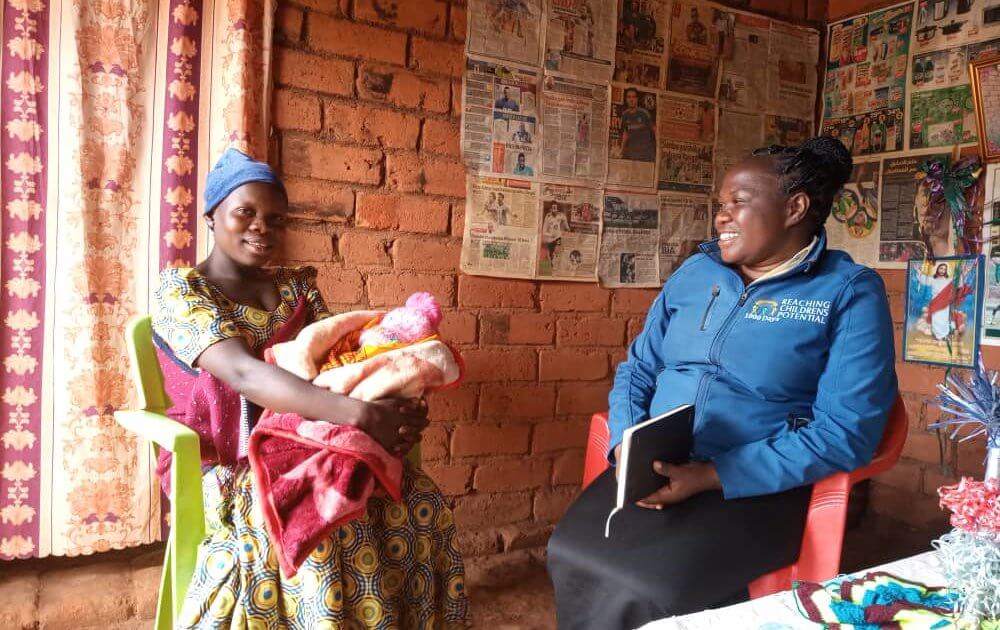
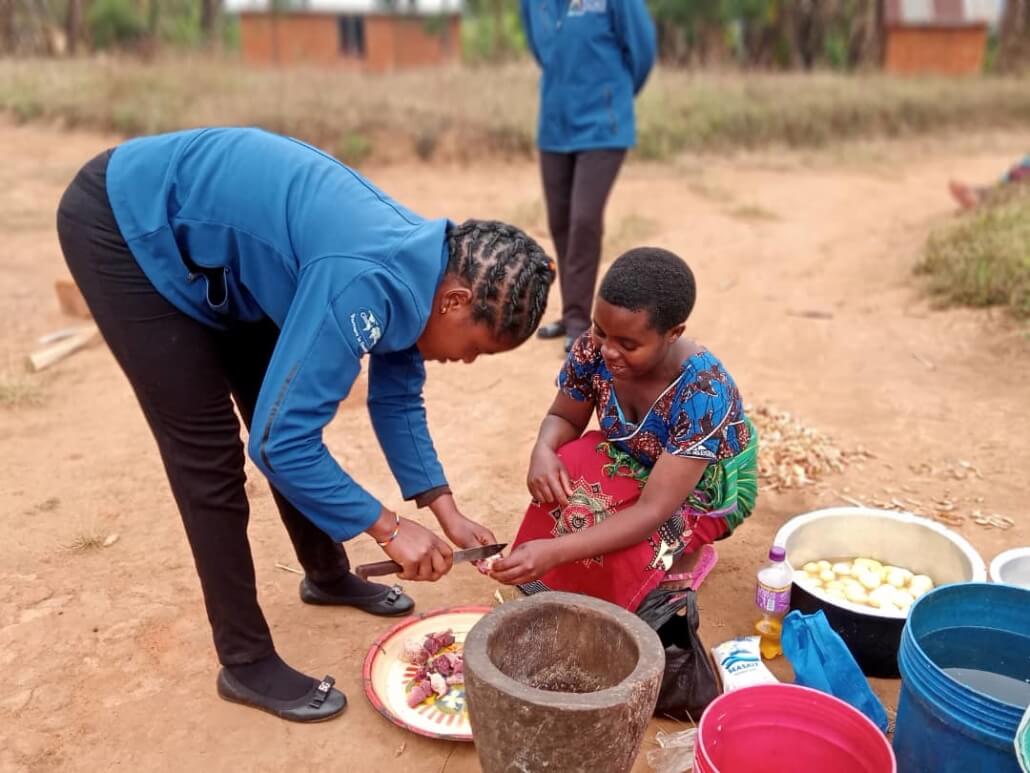
“My favorite part of being an RCP caregiver is home visits. I like home visits because they give me the chance to spend time with families and share ideas, knowledge, and skills. It also gives me the chance to learn from them. Home visits create a bond between the caregiver and the family by building trust and love.”
– Happy Mshanga, RCP Caregiver
How important are volunteers in your community?
Elkana: Moms and children love to see volunteers. They always want to learn how volunteers live and so when they come to the community, moms and children love to be able to visit with them and ask some questions. They have fun with them and learn from them.
Regina: When volunteers spend a week or two in our community, they contribute a great deal to helping families. Every single volunteer has something to add to society. They teach us caregivers many things, and they share their practical experience with us. I love it when they assist us in home visits.
Tausi: We need volunteers in our community to share the knowledge and ideas that they have with people here. That is essential and has a great impact on the RCP Program in the Ukwega Ward.
Sifuni: Volunteers can share their experiences with us caregivers and the families we serve, learn different lifestyles from those families, and also see and hear from families who are truly in need.
Fatina: Volunteers contribute new knowledge not only to the RCP moms but also to us as caregivers. The volunteers who come are from different backgrounds and careers and they can be very important to the local community through sharing new ideas and even providing solutions. This is very important in the community and we caregivers obtain new knowledge on how to deal with some issues.
Ashura: Volunteers are the very important people in our community. They help in impacting new ideas. Families always do their best when caregivers visit them, but when it comes to volunteers’ presence, families are even more dedicated to showing how they have implemented the program! Volunteers’ presence in our community also refreshes us caregivers through training, and the families as well during home visits. They help so much to make community change within a short time, and the moms very eagerly ask when the volunteers will come again.
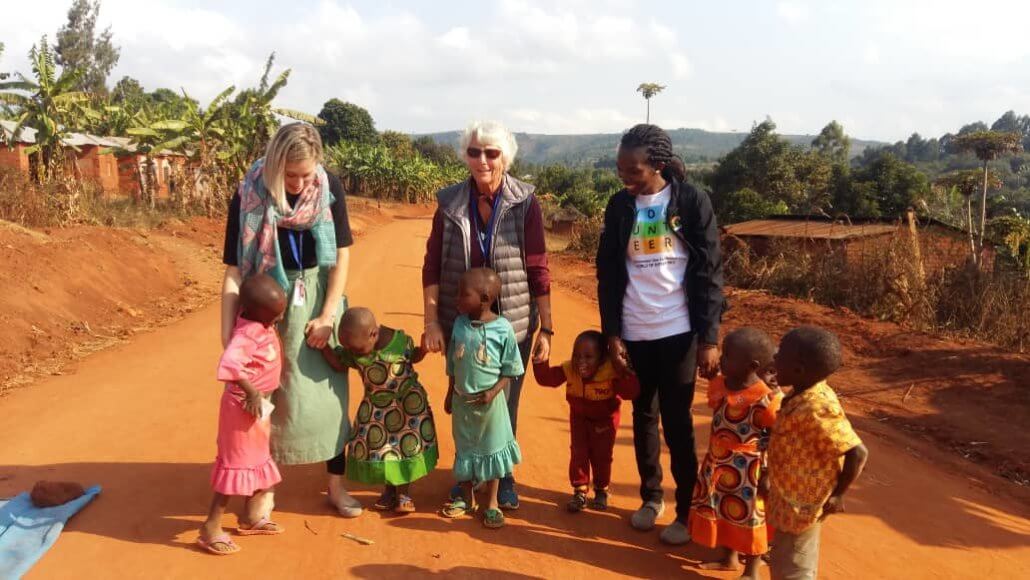
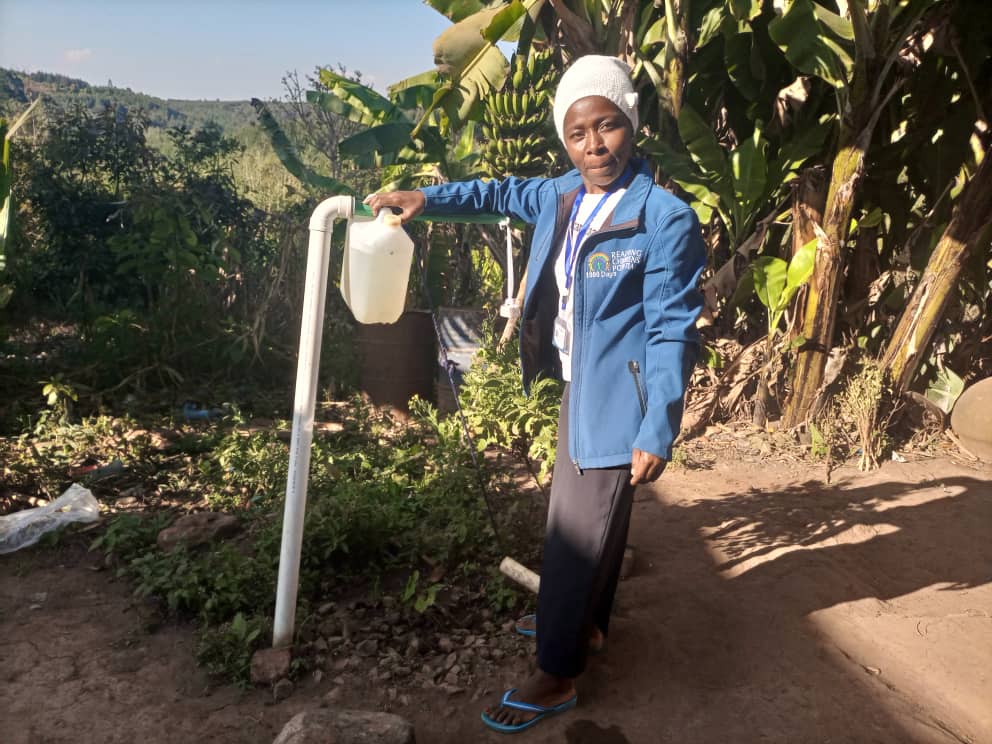
“Volunteers are the very important people in our community. They help in impacting new ideas. Families always do their best when caregivers visit them, but when it comes to volunteers’ presence, families are even more dedicated to showing how they have implemented the program! Volunteers’ presence in our community also refreshes us caregivers through training, and the families as well during home visits. They help so much to make community change within a short time, and the moms very eagerly ask when the volunteers will come again.”
– Ashura Mohamed, RCP Caregiver
What satisfies you about your work with the RCP families?
Regina: I love working with RCP families, to learn from them about their culture, and to help them with what I know and have learned from RCP. I am so happy to work with families to be part of the change in the community I serve.
Elkana: I feel so good to work with RCP families in the Ukwega Ward because it is the right place to spread the knowledge I have. The Ukwega Ward is far removed from a big town where knowledge is easily accessible, so being part of the program helps me to be one of the people who helps spread knowledge in the villages.
Ashura: Living here in the Ukwega Ward has given me the opportunity to experience a new culture, make new friends, and exchange different ideas about life in general.
Thekla: The thing which compels me to work with Global Volunteers is that I have a passion to work with the community. Working with the community is a two-way street in that you learn from them and they learn from you, too. Also, you can see the direct impact on the community as Global Volunteers work with the community directly in ensuring children meet their full potential.
Fatina: It’s so wonderful whenever you see that a family has adapted a new lifestyle or changed a behavior that you insisted on during a home visit and you start to see some positive changes in the family.
Amilia: I like to work with the RCP families in the Ukwega Ward because the moms are so eager to learn more about how to take care of their kids.
Happy: For me, working with RCP families in the Ukwega Ward is like a dream come true. I am so happy to serve the community and see different transformations, especially in health-related issues.
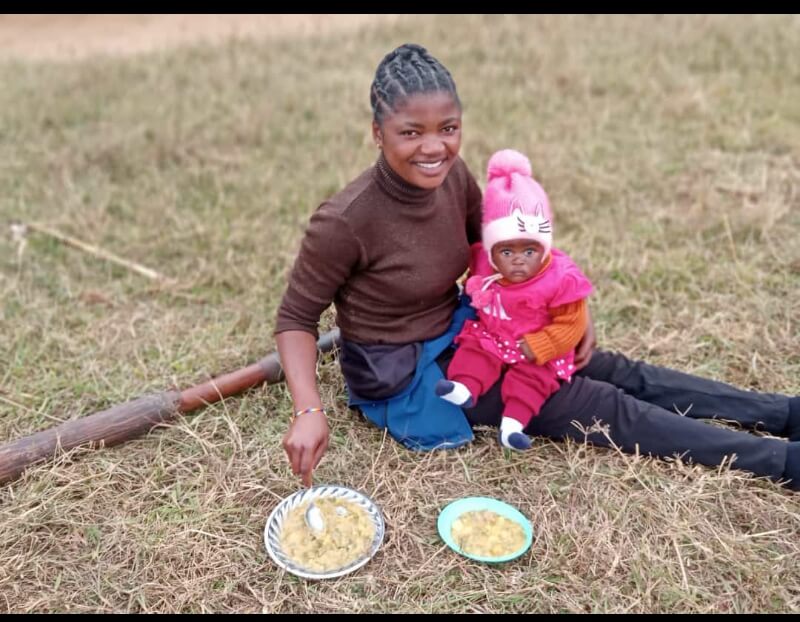
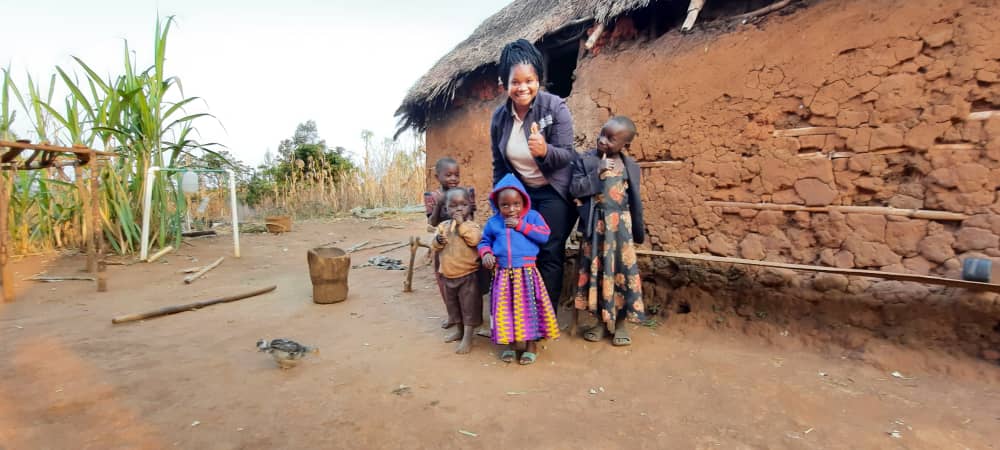
“It’s so wonderful whenever you see that a family has adapted a new lifestyle or changed a behavior that you insisted on during a home visit and you start to see some positive changes in the family.”
– Fatina Mbugi, RCP Caregiver
What is it like for you to work with the Reaching Children’s Potential Program and volunteers?
Regina: It is my passion to help families as well as my fellow women. And I love working with volunteers. I feel so happy and supported because they inspire us in different areas by sharing their experiences, skills, culture, and time.
Sifuni: As RCP focuses on the first 1,000 days of life, it is building a very strong foundation for the coming generation. Having a healthy and educated community is the key to development.
Fatina: This has become a very important part of my life. Working with RCP families is exciting and gives me the opportunity to spend more time with the families and deeply understand that I can use my skills and knowledge to impact the community and improve children’s futures. Since we get to know the realities of each family, we can work with them to be successful. Working with RCP families is fantastic and interesting.
Happy: I am truly honored to be the part of this team that brings hope and happiness to create a bright future with a generation of children who will reach their full potential.
Ashura: It feels good since the program seeks to change the lives of many, especially children, so they can have a better tomorrow by helping them to reduce the problem of stunting. Also, the volunteers impact the program significantly as they give new ideas and health tips. Sometimes when the families see volunteers, they put much focus on the technologies that RCP has given them.
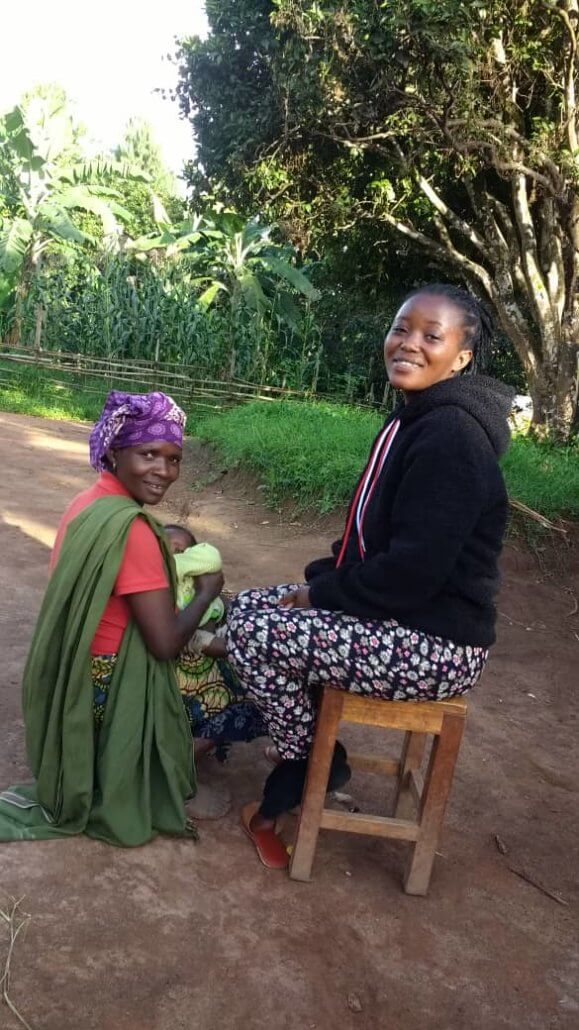
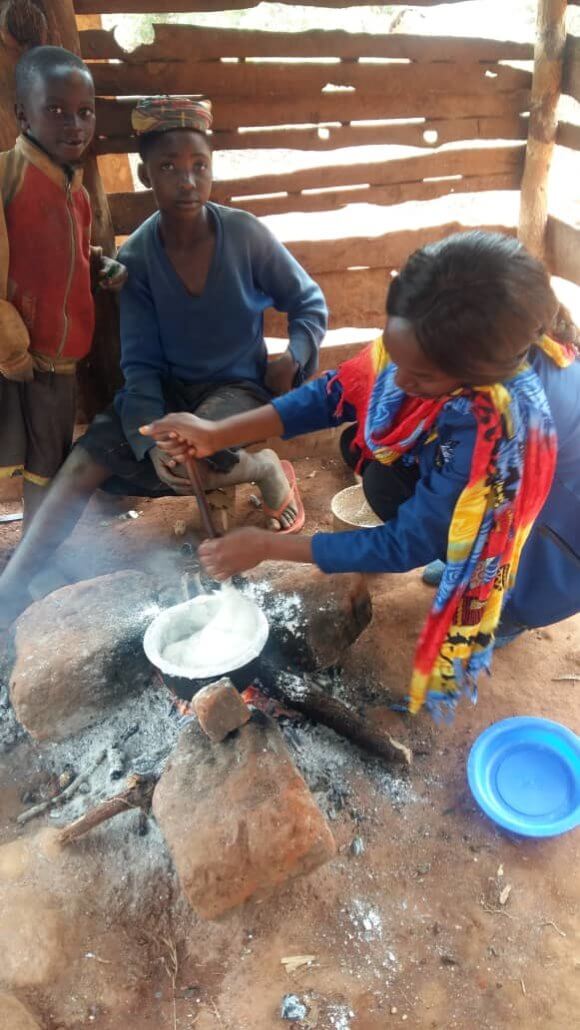
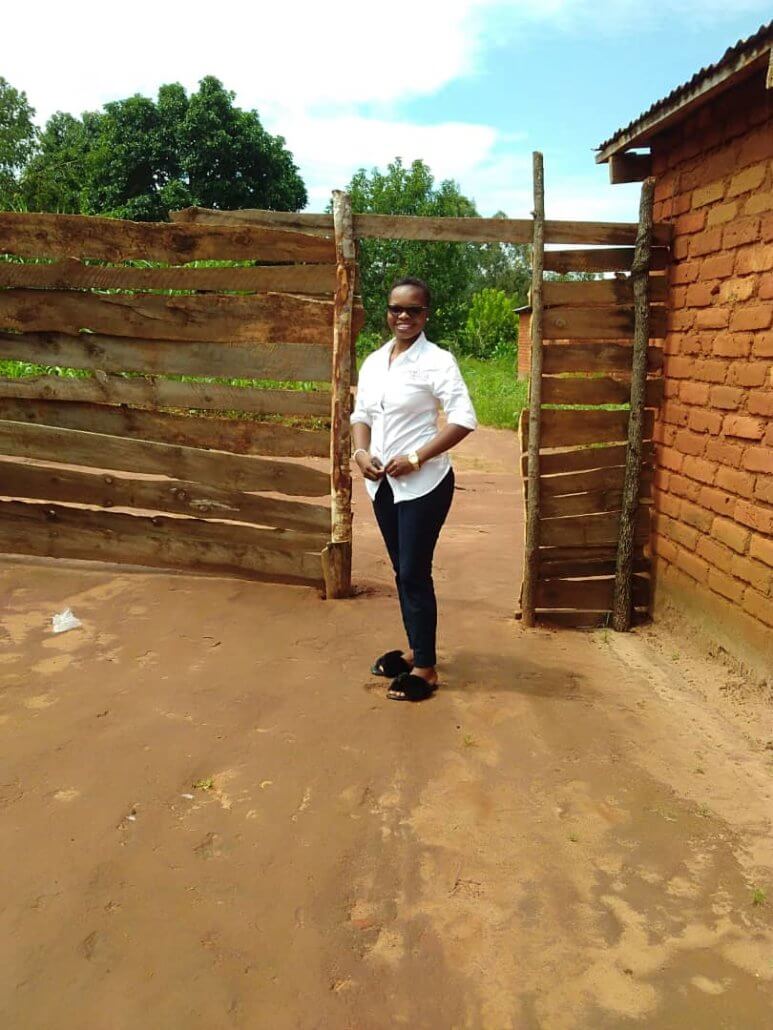
“I am truly honored to be the part of this team that brings hope and happiness to create a bright future with a generation of children who will reach their full potential.”
– Happy Mshanga
Would you like to share a special moment in the program?
Ashura: There are a lot of experiences I have had, but mostly this role has given me the opportunity to learn to be patient. This is true when we need to bring new ideas or technologies. This is a gradual process. Moms have had their culture and lifestyle a certain way for their whole lives in many cases, and so when it comes to adopting new behaviors, it takes time. The parents do a great job. It just takes time to see changes, and that gives us the opportunity to practice patience.
Thekla, what do you enjoy most about working with your team of caregivers as supervisor?
Thekla: I love working together as a team with all the caregivers. The caregivers I supervise are well trained and educated and most of them have a background in social work. I am confident they add value to the families. That makes it very easy to work with them. I especially enjoy the fact that sometimes we share skills and knowledge that we have for the sake of helping RCP children. The caregivers are committed to their job and we work hard to make sure our program is running well.
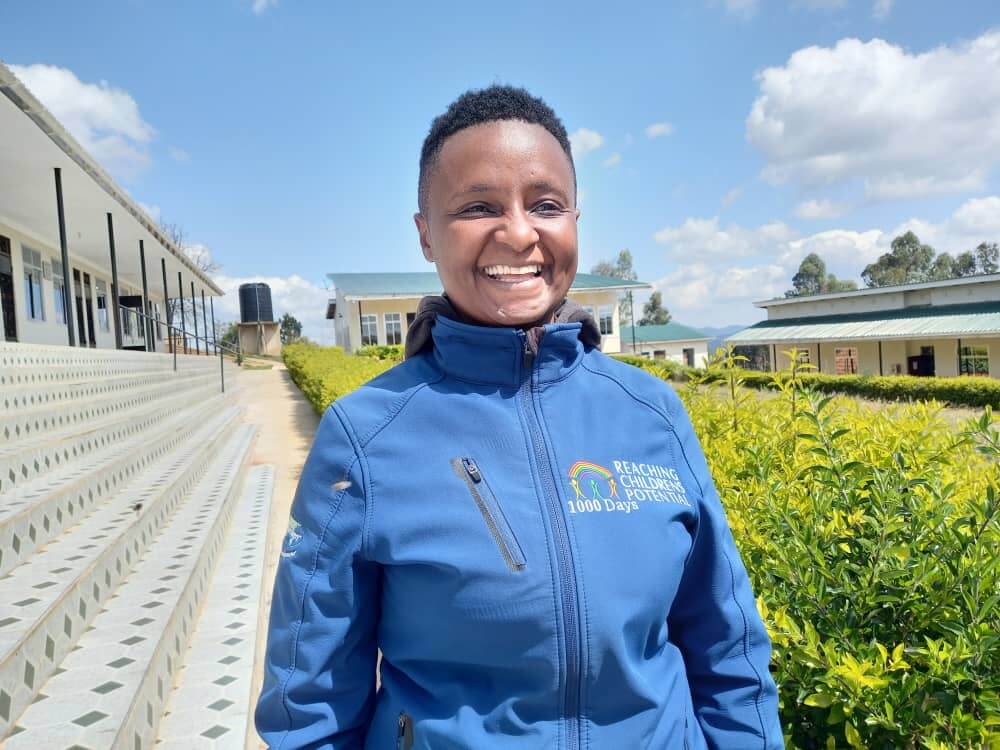
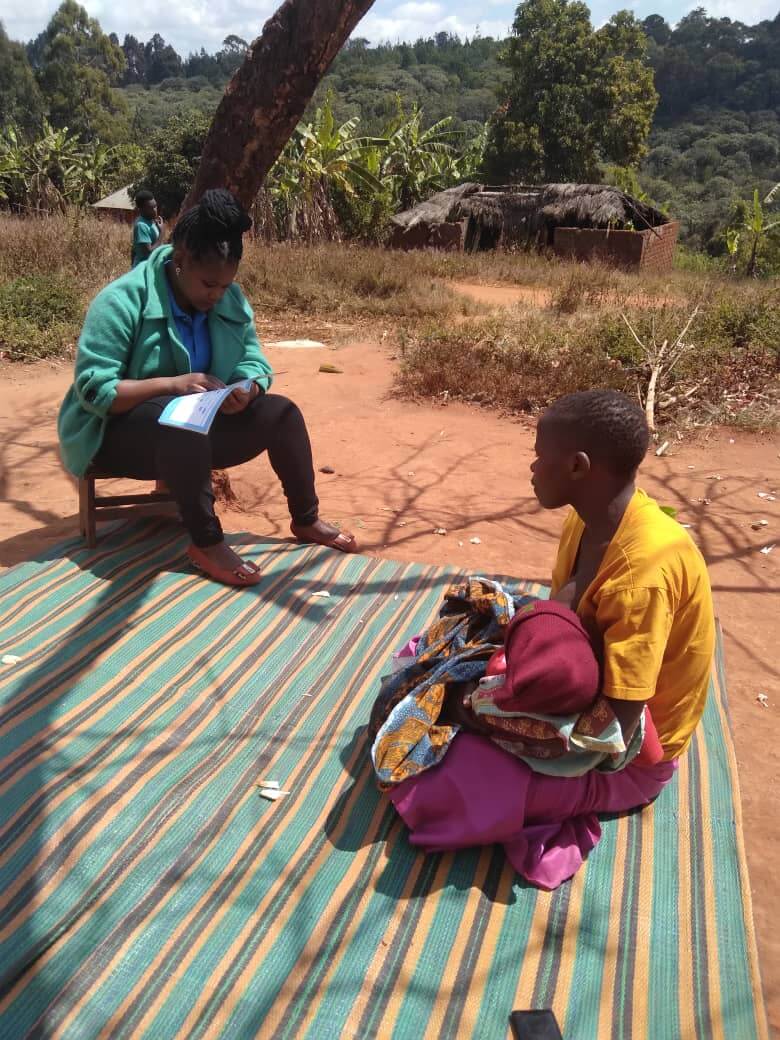
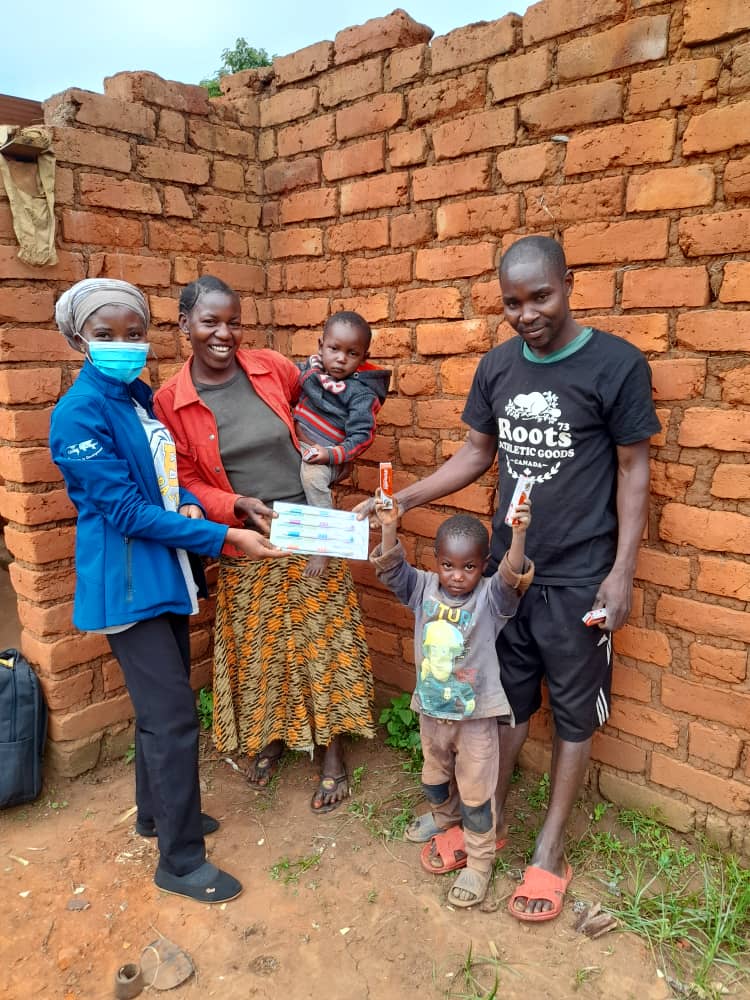
What has been your experience with volunteers?
Tausi: I feel very proud when I work with volunteers by interacting with them in the community and conducting home visits together.
Ashura: Most of the volunteers who come to our community have taught me so much about love. They truly have a feeling of helping and caring — so often I can feel and see it. They do their volunteer work based on their profession or experience, but I also can see love in what they do and that’s what can make things change. When it comes to the matter of serving the families, and more broadly, advancing Tanzania community health initiatives, it becomes very easy as love touches everyone’s life in one way or another.
You may also like:

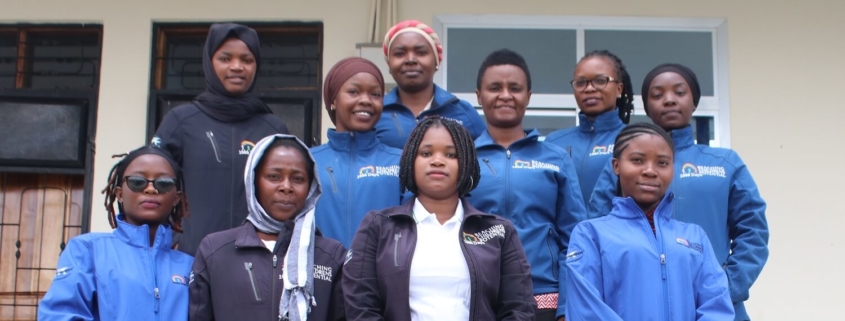


Leave a Reply
Want to join the discussion?Feel free to contribute!